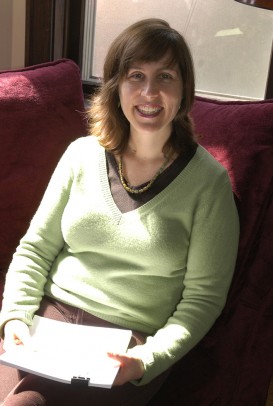Conference examines religion, war

Rachel Havrelock: “When considering war historically, the central role that religion has played becomes apparent.” Photo: UIC Photo Services
How do religious traditions link God and war? How have these connections been misunderstood or exploited? What is the basis for the modern proliferation of holy war?
Those are some of the questions addressed next week at The Holy War Conference at the UIC Institute for the Humanities.
The event, Nov. 15-16, brings together experts in Islam, Judaism, Protestantism, Catholicism, Buddhism, Hinduism and the ancient world to analyze current conflicts and historical holy war.
Religion increasingly is a factor in war and contemporary armed confrontations, said Rachel Havrelock, associate professor of English and Jewish studies and conference organizer.
“This seems counterintuitive when we look at our modern, technological era,” she explained.
“Yet when considering war historically, the central role that religion has played becomes apparent.”
While participating scholars will individually address specific religious traditions, the conference panels will offer a comparative look at the differences and similarities among conceptions of religious violence and how religion has been used to justify such actions.
“We will analyze religious writings pertaining to war and the laws governing battle from the Bible and the Quran, and situate these passages in their original historical contexts to facilitate our analysis of the conditions for religious war,” said Havrelock, a scholar of the Hebrew Bible and its historical interpretation.
“After exploring the role of holy war at foundational moments in religious history, we will consider the quotation of passages from religious texts in contemporary justifications for war.”
The keynote address, “Revelation and Militancy in the Traditions of Abraham,” will be presented Nov. 15 by Michael Sells, professor of Islamic history and literature in the Divinity School at the University of Chicago and author of the forthcoming book The God of War: America in a World of Religion.
Admission is free for the conference, which is sponsored by the UIC Institute for the Humanities and the College of Liberal Arts and Sciences.
